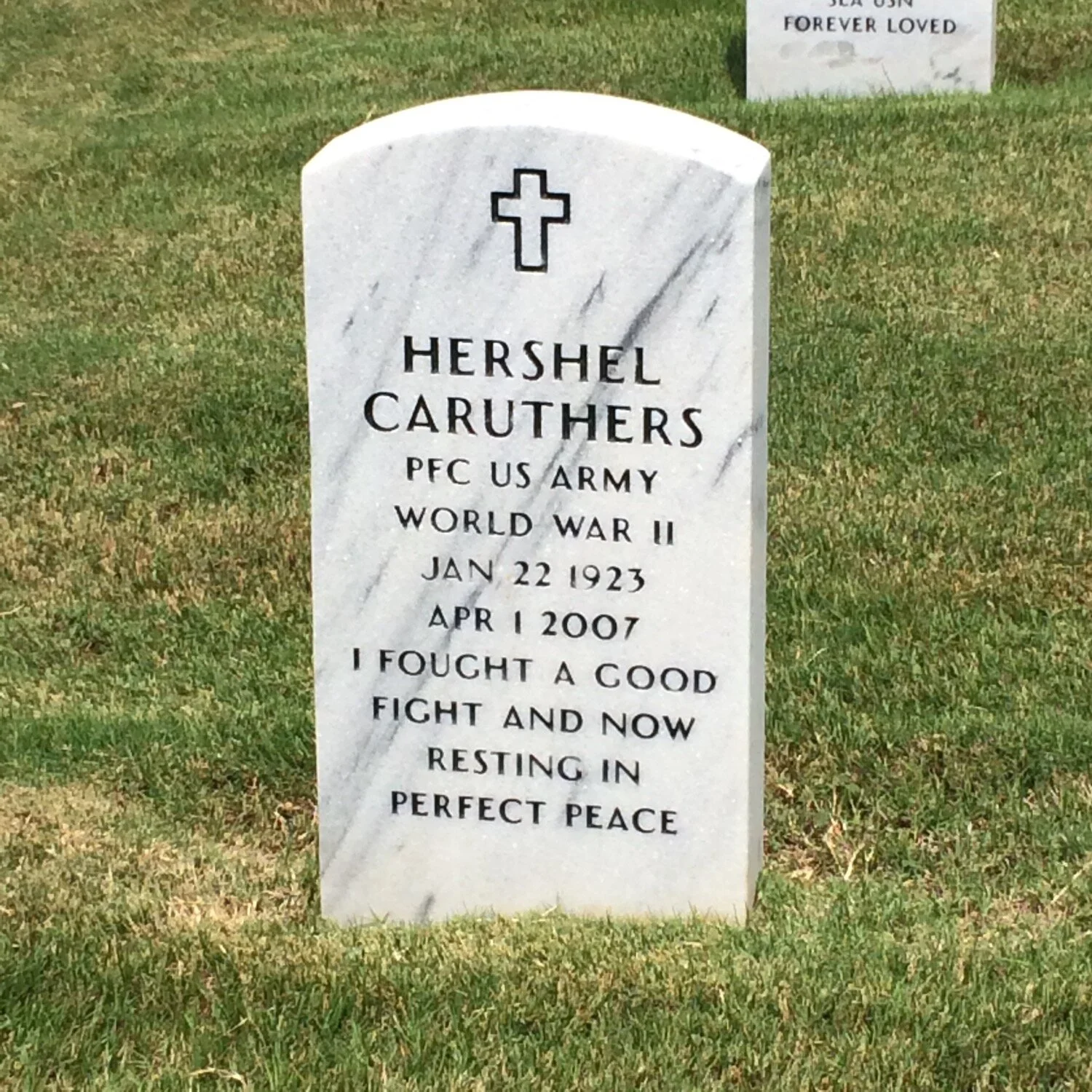Readings for today: 1 Samuel 28-31, 1 Chronicles 10
My dad’s family comes from a small town in western Nebraska. If you go to the cemetery there, you will find all my relatives going back several generations. Grossbachs. Reslers. Arenz’s. They’re all there. You’ll see a headstone for my son Caleb and the plots where Kristi and I will be buried as well. It’s a beautiful, peaceful place. Every time we go back to Wauneta, we make sure we go out to visit. We walk among our ancestors. We read their names. Birthdates. Deathdates. And ponder the messages they’ve left for us.
In the final analysis, what message will your life send? What will be written about you after you die? What memories will your children and grandchildren hold onto? How will they speak of you? King Saul ruled Israel for a number of years. He started off well but quickly went off track. His life is one of half-measures. A part of him tries so hard to be faithful to God but a greater part keeps taking matters into his own hands. His fear gets the best of him on so many occasions. And now we read about his death. A horrible one. You can almost see him on top of Mt. Gilboa. Wounded. Pierced through by many arrows. The bodies of his sons lying on the ground around him. He’s in pain. Agony. Grief-stricken. Israel has fallen before the Philistines. The glory of the Lord has departed. He’s watching it all come crashing down around him and in his despair, he asks his armor-bearer to finish him off before his enemies come and torture him. His armor-bearer refuses so Saul falls on his own sword.
What verdict does the Bible render about this man’s life? “So Saul died for his breach of faith. He broke faith with the Lord in that he did not keep the command of the Lord, and also consulted a medium, seeking guidance. He did not seek guidance from the Lord. Therefore the Lord put him to death and turned the kingdom over to David the son of Jesse.” (1 Chronicles 10:13-14) Saul’s death did not come at the hands of the Philistines. Not ultimately. His fate was sealed when he broke faith with God. When he did not wait all those years ago for Samuel to come and make the right sacrifices. From that point forward, Saul was doomed to perish and every action he took to stave off his fate only served to seal it further. Seeking out the witch of En-dor was simply the final straw that broke the camel’s back. Saul no longer sought God. No longer pursued God. No longer loved God. And so God put him to death and gave the kingdom to David.
So back to us? What will future generations say about you when you’re gone? The writers of the Chronicles were looking back at their history. They looked back at their leaders and they judged them primarily based on their fidelity to the Lord. How did they respond in good times? How did they respond in hard times? How did they act in times of plenty? How did they cope in times of want? I think about our cultural moment. The pandemic has exposed the cracks in our society. It has shined a bright spot light on the underlying issues that threaten to tear our nation apart. But I also know the same thing is happening deep inside each of us. What do our fears tell us? What do our anxieties reveal? How are we coping and where are we looking for help in this time of trouble? Is it to the Lord? Or something else? And after this season passes into the pages of history, what will people remember about how we handled things? Saul will forever be remembered by his epitaph in 1 Chronicles 10:13-14. David will forever be remembered as the “man after God’s own heart.” Who are you?
Readings for tomorrow: Psalms 121, 123-125, 128-130
